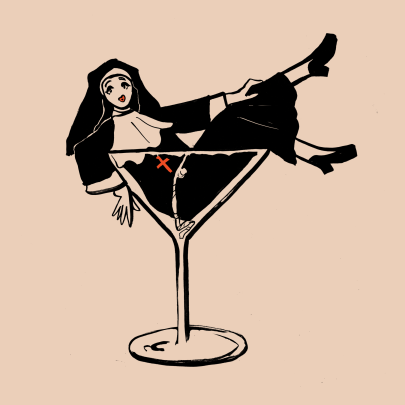Jul 4, 2014 Theatre
Hoki Mai Tama Ma
by Tainui Tukiwaho
Mangere Arts Centre
July 3, 2014
I love it when I think I’m watching one kind of thing and it turns out to be another. Hoki Mai Tama Ma, a new play that opened last night in Mangere and will transfer next week to the Aotea Centre’s Herald Theatre, is a surprise package: theatrically inventive, and then, late in the piece, revealing itself as a complex, challenging and extremely rewarding statement of cultural identity. It’s got great thematic intent. As for the sheer entertainment quota, Hoki Mai wells up over its 90 minutes on a rising tide of charm, punctuated by some really funny sequences. Yep, it’s a very good night out.
Tama (Rawiri Jobe) has just returned from a month in Italy, sent there by his koro, who was a POW during the war, on a secret mission. His cousin Bella (Amber Curreen) is angry, his Pakeha girlfriend Patricia (Ascia Maybury) is angry, his friend Nuku (Regan Taylor) doesn’t care… and Tama has his grandfather’s war diary, in which he will, the old man has said, discover a dark secret.
A mistress? Some war horror? At this stage, 10 minutes in, the play doesn’t exactly feel fresh. A bit of a cultural clash with the visiting girlfriend, a World War II past that haunts the present – these are old tropes in Maori writing and this example doesn’t seem like it’s going to do much with them.
Then the masks arrive. Maskmaker Tristan Marler has borrowed from commedia dell’arte with some of them and created original Maori masks for others. That is, they feature recognisable moko, but Maori culture doesn’t have masks. He, along with playwright Tainui Tukiwaho and director Gerald Urquhart, has invented a new form of Maori cultural expression.
It’s pretty audacious, and it works. That’s because the masks, as they should, allow all four actors to revel in some hilarious and highly creative antics. You’ve seen war, and prisoners of war, and laughable guards too, but never like this.
The action shifts between the two time zones, the story closes on the secret, emotional entanglements are played out. Tukiwaho hasn’t entirely come to terms with the problem of putting ordinary life on stage and making it interesting, and his action and dialogue don’t quite overflow with subtext, but he knows where he’s going with his tale and he doesn’t get sidetracked – and that means the play stays engrossing. He’s also helped enormously by the comic skills and sheer likeability of his cast: Taylor and Maybury in particular are tremendously entertaining in the support roles, and Taylor has a finely judged sense of musical comedy too.
Those masks, for all that they liberate the actors, involve risk. Has tapu been trodden on here? Tukiwaho told Metro last month he doesn’t even know. But whatever the risk with those masks, the play takes a far bigger one with the things it has to say about who we are. No spoiler here, but the revelation at the climax of Hoki Mai carries a remarkable provocation on the theme of how we define ourselves and value our cultural identities.
It’s almost 40 years since the Waitangi Tribunal was established in 1975 and Whina Cooper led the Land March to Parliament, and since then, in this country, we’ve engaged in an ongoing debate about identity – and it’s a debate that’s been both inspiring and enraging for everyone, no matter where they stand in it.
This play, deeply grounded in tikanga Maori, subverts a lot of assumptions. It couldn’t have been written last century; it might make Winston Peters uncomfortable, and Hone Harawira too; and yet what it has to say about whanau should thrill us all.
Hoki Mai Tama Ma runs until July 5 at the Mangere Arts Centre and then transfers to the Herald Theatre July 9-12.





